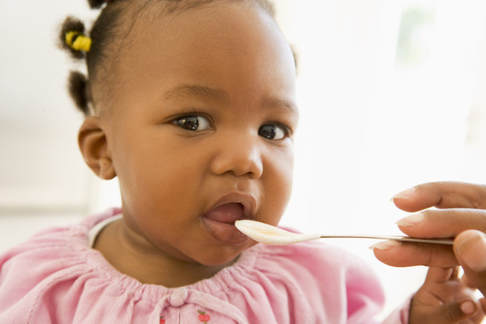|
It happens almost cyclically. Every few months or so there's another tragic story about a poor young soul who loses their life due to the ignorance of their parents. These parents are almost always vegan, and their lifestyles are almost always, even by vegan standards, quite extreme. The headlines are alarming and incendiary, and the implication is always that veganism is to blame for the child's death. The comment sections explode with derogatory remarks about "crazy vegans" who starve their children to death. One particularly memorable and contradictory comment even likened vegans to climate change deniers. Point is, the sensitive nature of these stories and the tragedy of a young life lost always gets people riled up, and unfortunately, the real problem gets lost in all the clamor.
Understand, the term "vegan" tells you much more about what a person doesn't eat than what they do eat. Vegans do not eat meat or any animal byproducts, including eggs and dairy. While many people assume that all vegans subsist on twigs, leaves and berries (-_-), there are junk food vegans who eat nothing but unhealthy packaged and processed foods. Likewise, there are those whose meat-based diets are chock full of protective fruits and vegetables while others subsist on nothing but fried, greasy or sugary food. That being said, there are vegans, vegetarians, and meat-eaters alike who are uneducated about nutrition, especially the particular nutritional needs of a young, growing child. This is not something that is exclusive to vegans, the increasing incidences of diet-related diseases in children is proof of that. So, is a vegan diet healthy for children? Many people feel that vegan diets are unhealthy because of supposed missing nutrients, but this notion is also rooted in nutritional ignorance. First, it presupposes that children and adults alike are getting all the vitamins and nutrients that they need from their meat-based diets (they aren't). Second, there is nothing that can be obtained from meat that cannot be obtained in adequate amounts from a plant-based food or, in the special case of vitamin B12, supplementation. Indeed, the American Dietetic Association came out with this position back in 2009: "It is the position of the American Dietetic Association that appropriately planned vegetarian diets, including total vegetarian or vegan diets, are healthful, nutritionally adequate, and may provide health benefits in the prevention and treatment of certain diseases. Well-planned vegetarian diets are appropriate for individuals during all stages of the life cycle, including pregnancy, lactation, infancy, childhood, and adolescence, and for athletes. " (emphasis mine) The key term here is "appropriately planned", because as I mentioned previously, a vegan diet that is not rich in nutrient-dense foods such as fruits, vegetables, seeds and legumes can be harmful. However, the same also holds true for a meat-based diet that doesn't include these health-promoting foods. The common thread here is nutritional ignorance. Of course, nutrition is not a standard subject taught in American schools, and the media is awash in ever-changing misinformation regarding what is truly healthy and what isn't, so it's no surprise that Americans are confused about how to properly eat. But to point to veganism, or a plant-based diet in particular, as somehow unhealthy or dangerous, is ludicrous. This demonization of veganism also stems from a sort of Western-centric ignorance that discounts the dietary knowledge that other cultures have cultivated over many centuries. Countless societies have sustained themselves (raising perfectly healthy children, no less) on vegan, vegetarian, or near meat-free diets. A vegan or vegetarian who has grown up in a meat-heavy dietary culture may become confused when it comes to feeding their children. Fear, paranoia, and misinformation can all contribute to a lifestyle that is actually devoid of nutrition, and while grown adults may be able to survive in such a state, growing children cannot. For example, in spite of the low-fat fads that are common in the dietary world, it is imperative that babies and infants receive adequate fat from their diets. During these critical years, brain development is rapid, so feeding the brain the nutrients that it needs is crucial. Educating yourself and consulting the appropriate authorities on infant development is absolutely important, even if you eat meat. It is very easy to point to vegan diets as extreme, but this is frankly an ignorant and lazy thought process. Eliminating recess and cutting back on gym classes is extreme. Children being forced to subsist on junk food because they live in food deserts is extreme. Denying children their lunch because a parent can't afford to pay is extreme and should damn well be considered criminal. Allowing corporate interests to dictate the food being sold and served in schools is extreme. But wanting to feed a child the most nourishing foods that this Earth has to offer is anything but extreme. It just has to be done right.
3 Comments
Jillian Abballe
7/17/2017 03:37:00 am
Yasss! Bravo. Pointing out how we understand what is extreme--yes. And it makes it that much harder in the current climate in this country where extremes in general, and what we consider appropriate and even "legal" is changing so rapidly and a frighteningly not normative...
Reply
11/23/2017 03:41:13 am
I do not really understand why so many people hate on vegans. I get that we all have our own preferences when it comes to the food we prefer to eat. But I believe that we should also learn how to respect each other's preferences. If vegans are encouraging other people to eat healthy, then let them be. It is still up to the person they are persuading whether he or she will stop eating meat so it should not be much of a big deal.
Reply
Reynold
7/17/2017 02:10:08 pm
(clap emoji)
Reply
Leave a Reply. |
AuthorMy name is Nivea, but you can call me Niv. I'm an independent Plant-Based Nutrition & Fitness Coach hailing from the Bronx, NY. Archives
August 2021
Categories
All
|



 RSS Feed
RSS Feed